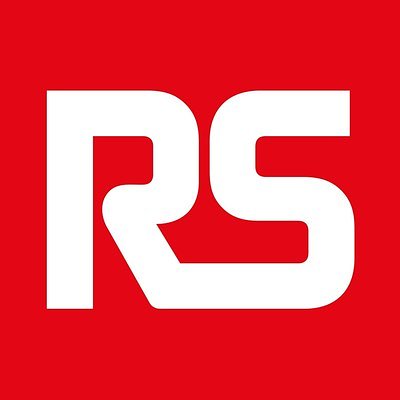
RS & Omron Partner to Drive Sustainability & Efficiency in Industrial Control Panels
A new partnership between RS and Omron aims to address growing demand for sustainable and cost-effective industrial control panel solutions, leveraging standardized designs and energy-saving technologies.
RS & Omron Partner to Drive Sustainability & Efficiency in Industrial Control Panels
DUBLIN, IRELAND – November 10, 2025 – RS, a global distributor of industrial and electronic components, and Omron, a leading provider of automation and control solutions, today announced a strategic partnership aimed at delivering streamlined, sustainable, and cost-effective industrial control panel solutions to manufacturers and machine builders worldwide. The collaboration centers around Omron’s innovative ‘Value Design for Panel’ system, which promises to reduce total cost of ownership by optimizing design, improving efficiency, and minimizing environmental impact.
As industries worldwide grapple with increasing demands for automation, heightened sustainability concerns, and persistent supply chain challenges, the need for optimized control panel solutions has never been greater. Analysts project the global industrial control panel market to reach approximately $25 billion by 2033, growing at a compound annual rate of 7% from its current $15 billion valuation. This growth is fueled by the expanding adoption of Industry 4.0 technologies, the rising need for enhanced operational efficiency, and significant investments in smart infrastructure projects.
Addressing Industry Pain Points
“Manufacturers are facing immense pressure to deliver more with less,” explains a spokesperson from RS. “They need solutions that not only enhance performance and reliability but also reduce complexity and cost. This partnership with Omron allows us to deliver on that promise.”
Omron’s ‘Value Design for Panel’ system focuses on standardization and modularity, enabling faster design cycles, simplified assembly, and reduced component variation. This approach minimizes engineering hours, streamlines procurement, and reduces the risk of supply chain disruptions. Furthermore, the system incorporates energy-efficient components and optimized thermal management, contributing to lower energy consumption and reduced carbon emissions.
“We’re seeing a clear shift in the market towards solutions that prioritize sustainability and efficiency,” notes an industry analyst. “Companies are increasingly recognizing that these factors are not just ‘nice-to-haves’ but essential drivers of long-term competitiveness.”
The Push for Sustainable Manufacturing
The partnership arrives amidst growing global momentum towards sustainable manufacturing practices. Driven by regulatory pressures, investor expectations, and consumer demand, companies across a wide range of industries are actively seeking ways to reduce their environmental footprint. This trend is driving demand for energy-efficient components, waste reduction strategies, and circular economy initiatives.
Omron emphasizes its commitment to sustainability as a core tenet of its business strategy. The company has set ambitious targets for reducing greenhouse gas emissions across its value chain and promoting energy-saving products. “We believe that technology has a vital role to play in creating a more sustainable future,” states an Omron representative. “Our ‘Value Design for Panel’ system is just one example of how we’re leveraging innovation to address critical environmental challenges.”
However, quantifying the specific environmental benefits of the system requires detailed lifecycle assessments. While Omron claims the system can achieve “over 50%” reduction in greenhouse gas emissions compared to previous models, independent verification remains crucial. Detailed environmental product declarations (EPDs) and third-party certifications would provide greater transparency and credibility.
Competition & Innovation in the Control Panel Market
The industrial control panel market is highly competitive, with established players like ABB, Siemens, Schneider Electric, and Rockwell Automation vying for market share. These companies are continually innovating, offering advanced solutions that integrate digital technologies, data analytics, and remote monitoring capabilities.
“The competitive landscape is constantly evolving,” states an analyst specializing in industrial automation. “Companies are focusing on delivering solutions that not only meet the immediate needs of manufacturers but also provide a platform for future growth and innovation.”
RS and Omron’s partnership seeks to differentiate itself by focusing on simplicity, sustainability, and cost-effectiveness. The emphasis on standardization and modularity allows manufacturers to quickly adapt to changing requirements and reduce time-to-market.
“We’re not just selling components; we’re providing a complete solution that addresses the entire lifecycle of the control panel,” explains a source within RS. “From design and procurement to assembly and maintenance, we’re committed to helping our customers optimize their operations and achieve their sustainability goals.”
The Future of Control Panels: Standardization & Scalability
The partnership signals a broader trend towards standardization and scalability in the industrial control panel market. As manufacturers increasingly embrace modular automation and flexible manufacturing processes, the need for standardized components and scalable control systems will only grow.
Industry 4.0 technologies, such as the Industrial Internet of Things (IIoT) and digital twins, are further driving this trend. These technologies enable manufacturers to collect real-time data, optimize performance, and predict maintenance needs. However, realizing the full potential of these technologies requires a robust and scalable control infrastructure.
“The control panel is no longer just a box of wires and components; it’s a critical component of the digital factory,” says a technology consultant specializing in industrial automation. “Companies that can deliver innovative and scalable control panel solutions will be well-positioned to succeed in the evolving industrial landscape.”
RS and Omron’s partnership aims to deliver on this promise by providing manufacturers with the tools and technologies they need to build the next generation of industrial control panels. The collaboration represents a significant step towards a more sustainable, efficient, and connected future for industrial automation.
